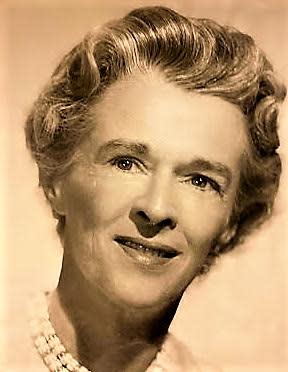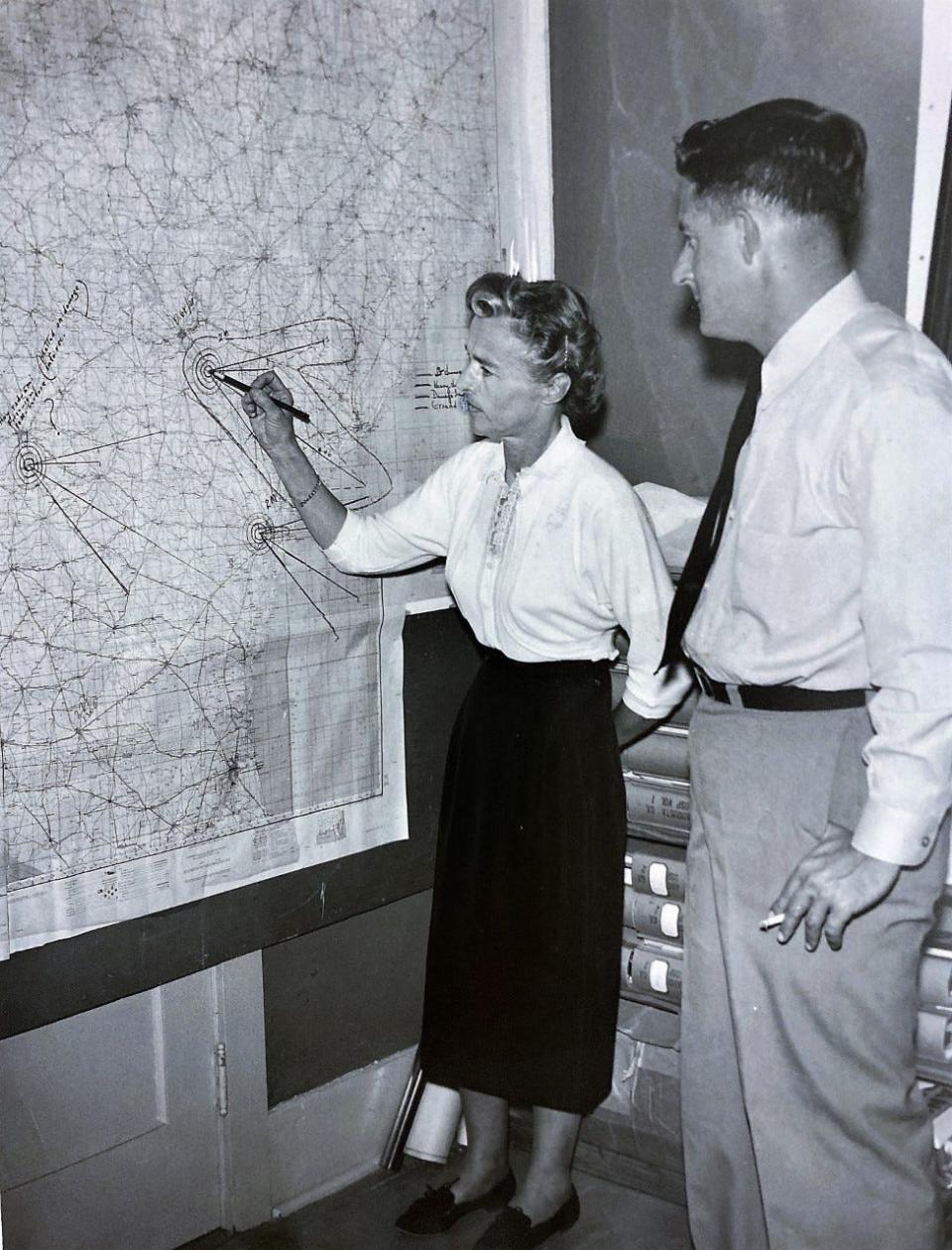The Way We Were: Meet the woman who stocked and secured Augusta's Cold War shelters
During the height of the Cold War in the 1950s and '60s, Augusta's Civil Defense effort was led by a slender Philadelphia native with a bachelor's degree in music education.
The University of Pennsylvania might not have prepared Lillian Freiberg for such duty, but her crowded résumé of local civic leadership showed her to be a natural at the task.
After moving to Augusta in 1947, she got very busy.
She was president of the Perrin PTA, president of the Langford Junior High PTA, chairman of the Red Cross First Aid Committee, president and vice president of the League of Women Voters, and president, vice president and treasurer of the Augusta Woman's Club. She was even treasurer of the German Shepherd Dog Club and secretary of the Augusta Kennel Club.
Also: Augusta loved President Harding, history's not so sure
Monday Mystery: The curious death that led to a gold rush
More Augusta history: 4 soldiers save a colonel from the bottom of a lake

In 1952 the mother of two was selected deputy director of Augusta's Civil Defense effort, and three months later, the governor appointed her director.
She would hold that job for more than two decades, speak to scores of civic clubs and be interviewed by a parade of newspaper reporters who kept asking her how she coped with the responsibility protecting Richmond County residents from the threat of nuclear war.
"When I first took the job," she said during a 1965 interview, "I couldn't sleep at night. I worried all the time. But then, you can't do your best work that way, can you?"
Managing Augusta's civil defense effort out of her family home at 1019 Oleander Drive (her husband George was a J.B. White's credit manager), Freiberg managed the county's public fallout shelters, making sure they were stocked with food, water and medical supplies.
The 47 licensed shelters provided room for 91,129 people – each granted 10 square feet. Each inhabitant would survive given one package of high-calorie crackers per day, as well as a quart of water.

Each shelter had a "shelter man," a maintenance man, an information officer and a deputy for operations.
They were set up to protect their inhabitants from a nuclear attack for up to two weeks.
And then?
Freiberg told reporters several things could happen.
First, total destruction. "We'll have nothing to worry about …" she said, "because there will be nothing left."
Second, partial destruction with radioactive contamination. Trees down, wires down, buildings crumbled, shattered glass.
Third, undamaged but contaminated with radioactive fallout.
And last, undamaged and uncontaminated.
She said skeptics complain there's not much positive about emerging from a shelter into a damaged world, but she reminded them they would still be alive.
Freiberg said she had to overcome the reluctance of some when she got the job in the early 1950s because she was a woman, but that didn't last long. She began taking her message to local community and civic clubs, according to newspaper accounts. In one year, she counted more than 250 speaking engagements, sometimes four a day. She also submitted detailed plans and organizational approaches to city and county government. She provided a lengthy 13-point approach that involved public safety departments and volunteers.
The plan never had to be used.
In the 1970s, nuclear disasters seemed a distant memory and Augusta and Richmond County governments lost interest in civil defense funding.
Freiberg stepped down and her replacement lasted nine months before the mayor fired him for asking for a bigger budget.
In the late 1970s, Richmond County began a revitalized focus on natural disasters such as tornadoes, hurricane and floods, a shift Freiberg had begun early in the decade. She discussed that change in a 1973 interview, shortly before her departure.
She called civil defense interest "… the same here as in other cities and towns – very, very low. There is nothing much you can do about it."
Her 1973 budget was $15,000, and more than a third of that came from the federal government, with the city and county putting up the rest.
In the 1980s, Lillian Freiberg did something she had not done in 40 years – she lived quietly. Her husband George died in 1987 and she moved to Brandon Wilde in Evans until she passed away in June 1994. Her modest obituary on page 8C of The Chronicle mentioned she was a retired civil defense director, but had no photo of the woman who once made 253 speeches in a single year encouraging public safety preparedness.
Bill Kirby has reported, photographed and commented on life in Augusta and Georgia for 45 years.
This article originally appeared on Augusta Chronicle: Augusta history: Lillian Freiberg stocked, secured Cold War shelters

